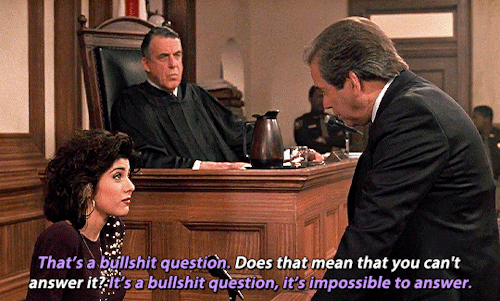M Media hysteria, shocking court hearings, dubious political dealings and suspicious mass mail drops prove to be the makings of...a Christmas miracle?! The 1947 classic Miracle on 34th Street somehow manages to piece together these elements and more to relate a fable for our times. The film follows a department store Santa (who just might be the real thing) whose innocent efforts to spread Christmas cheer place him both under psychiatric evaluation and in front of a judge. Beneath its warmth and whimsy this heartwarming holiday tale relates lessons in decency, resilience, and faith that resonate now more than ever.
The story begins on Thanksgiving with Macy's event director Doris Walker struggling to salvage the store's parade after the Santa she had hired arrives for work drunk. Fortunately, concerned bystander Kris Kringle appears on the scene and offers to stand in for the inebriated employee. Kris' performance during the parade proves so successful that he is hired as the store's Santa for the remainder of the season. Throughout his employment, Kris is nothing less than delightful as he entertains the store’s customers and teaches Doris’ mature daughter, Susan, the joys of being a kid. Cynical Doris, however, decides that the old man is taking the Santa act too far and tries to fire him for fear that he is unstable and a company liability. When Mr. Macy himself advises her against the decision she instead recommends that Kris schedule an appointment with the store's on-staff psychiatrist. The appointment results in a series of misunderstandings that result in Kris being committed to Bellevue Hospital’s psychiatric ward. Doris’ neighbor, lawyer Fred Gaily, then takes it upon himself to defend Kris at a sanity hearing by proving that Kris is not only perfectly sane, but also the real Santa Claus.
B The film's infectious cheer has mesmerized generations, but it is its call to faith and integrity in a cynical age that has earned Miracle on 34th Street a place in cinema history. Throughout the film those who remain true to their beliefs and fail to adhere to popular norms are dismissed as misguided or even unstable. In an era in which media members, medical experts, and political leaders dictate a firm but not necessarily factual narrative Kris' plight eerily reflects that of millions who have been silenced, derided, and even persecuted for questioning the powers that be. Even when all hope seems lost, however, Kris never loses sight of his beliefs or waivers in his determination to remain true to them. In this way, Kris elevates Santa Claus beyond a benevolent fairy tale figure to a role model we all could learn from.
When Fred offers to take Kris' case he defends his decision by saying "It's not just Kris that's on trial, it's everything that he stands for. It's kindness and joy and love and all of the other intangibles". After a year of political, economic, social, and personal upheaval those 'intangibles' that Fred refers to seem better suited for the fairy tales that Susan dismisses than real life. Yet it is in times of struggle and division such as these that those intangibles matter most. It is these invisible ties of joy, love, hope, and faith that bind us together even as everything around us seems set to tear us apart. As the holiday season descends upon us once again it is imperative that we find light in the midst of the darkness surrounding us and remember that those little intangibles truly are the only things worthwhile.
 |
| Just ordinary election-I mean trial- procedure... |
The film comes to vibrant life thanks to the warmth and wit of its cast. Philip Tonge is riotous in his turn as anxiety ridden toy department manager Mr. Shellhammer. Gene Lockhart infuses his performance as Judge Harper with wisdom and decency. William Frawley is memorable in his brief appearance as Judge Harper's cynical but savvy political strategist, Charlie Halloran. Porter Hall is a villain viewers will love to hate as self-important bureaucrat Mr. Sawyer. In her first major role Natalie Wood displays a subtlety, nuance, and realism in her performance as precocious Susan that foreshadows her later screen success. John Payne personifies honesty and idealism and makes for a charming romantic lead as Fred Gailey. Maureen O'Hara is captivating in her portrayal of the well-meaning, but world weary Doris. Edmund Gwenn shines in a performance that exudes such kindness, cheer, and warmth that viewers will be left wondering if he might really be Santa Claus off-screen as well as on.




